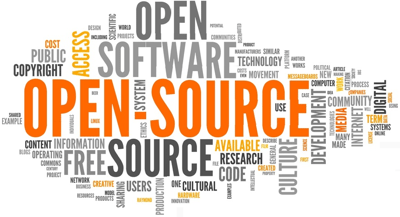
Finally, just over a week ago, Open Banking came into the UK and Open APIs into the European Union. I am sure you all know what this is all about by now but, just in case, it is the regulations that force banks to share data through APIs – plug and play software – with trusted third parties, if the customer gives permission. This means that other firms you like, such as Amazon and Facebook, can leverage this data and allow you to send money and gifts to friends and family with a simple click or swipe in an app. You no longer have to login to a bank system and enter new payee details with account numbers and sort codes; just say send that £1:50 to Joe and £900 to Anne. And when I say ‘just say’, I mean it as banking can now be incorporated into Siri, Alexa or Cortina.
All well and good but, in a move that I am fairly sure was carefully orchestrated by the banking community, nearly all of the mainstream media greeted the launch of Open Banking with fear and scaremongering. These three headlines illustrate it well:
- Open banking? I think I’ll be keeping my door shut, The Guardian
- ‘Open Banking’ revolution will leave account holders at mercy of ‘hackers and thieves’, banks warn, The Telegraph
- Fraud fears over ‘open banking’ revolution, The Times
- Customers who sign up to 'open banking' revolution where they share details in the hope of better deals 'could be put at risk from fraudsters', Daily Mail
- 'Open banking' revolution could lead to scams and pricing rip-offs, experts warn, The Telegraph
- Is the open banking revolution a fraudster's charter?, Daily Mail
- ‘Open banking’ begins today. It poses one major threat to your money, The Telegraph
Even The Financial Times jumped on the bandwagon:
Will you let a stranger look deep into your bank account?
Be afraid … be moderately afraid. Open Banking arrives on January 13, allowing “third-party service providers” to access data from your bank accounts online, if you give permission. It sounds terrifying, doesn’t it?
Although after that opening line, the article does a good job of explaining that it is safe and secure and a good thing potentially. However, it started with such a negative tone and, with the ADD world we live in, that is likely to be all the reader remembers. In fact, the problem is that nearly every article I’ve read has greeted the development with a negative headline, even if the mainstream content is more balanced. As a result, no consumer is going to think Open Banking is a good thing and, with two-thirds of UK bank customers avoiding mobile banking and a third even running scared of internet banking, as they think it is insecure, I really cannot see how consumers are going to adapt to and accept the benefits of Open Banking.
Nevertheless, the FinTech community are far more advocates of the new regime:
- Europe’s banks brace for a huge overhaul that throws open the doors to their data, CNBC
- PSD2 represents a huge opportunity – will it be seized?, Information Age
- Open Banking is here to change how you manage your money, engadget
- Open Banking - a lifeline for high street retail, altfi News
- Open banking – the invisible reform that will shake up UK financial services, The Conversation
- It could be easier for Facebook and Google to get into UK banking thanks to new rules, Business Insider
- Seeding A Revolution - 10 Prize-Winning UK Fintechs Set Out Their Ideas For Open Banking Services, Forbes
Note that to find the positive spin on Open Banking, I’ve had to seek out more business or niche news channels than the doomsayers of the mainstream consumer media.
My take on this is that you have two camps battling with each other. The mainstream banks with the mainstream media and the FinTech community with the tech and niche media. Unfortunately, the latter camp will never win out if they are not safe and secure in the consumer’s head and, more than this, offering something that is a compelling reason to change.
In fact, the most likely outcome of Open Banking and Open APIs is that the big players will try to leverage more against their competition through data and the internet giants will gradually step in , with possible partnerships with the niche FinTech community, to create that compelling switch reason.
For example, if Facebook is savvy enough, they would pickup with Stripe, TransferWise, Zopa and others to look for ways to make it easy for you to respond to their in-app advertisers, games and purchases and make it easy to get anything you want with a swipe. Add on to this that it’s social and sharing, then I should be able to donate to friends’ causes or pay my mates with messenger.
Amazon and Alibaba are the two most likely global players who will get this first, not forgetting the other guys: PayPal, Tencent and more. It is these heavyweights working with niche lightweights that will change the game through Open Banking and, in the meantime, the ill-informed carping journalists can continue to kiss the banks’ backsides.
Chris M Skinner
Chris Skinner is best known as an independent commentator on the financial markets through his blog, TheFinanser.com, as author of the bestselling book Digital Bank, and Chair of the European networking forum the Financial Services Club. He has been voted one of the most influential people in banking by The Financial Brand (as well as one of the best blogs), a FinTech Titan (Next Bank), one of the Fintech Leaders you need to follow (City AM, Deluxe and Jax Finance), as well as one of the Top 40 most influential people in financial technology by the Wall Street Journal's Financial News. To learn more click here...

